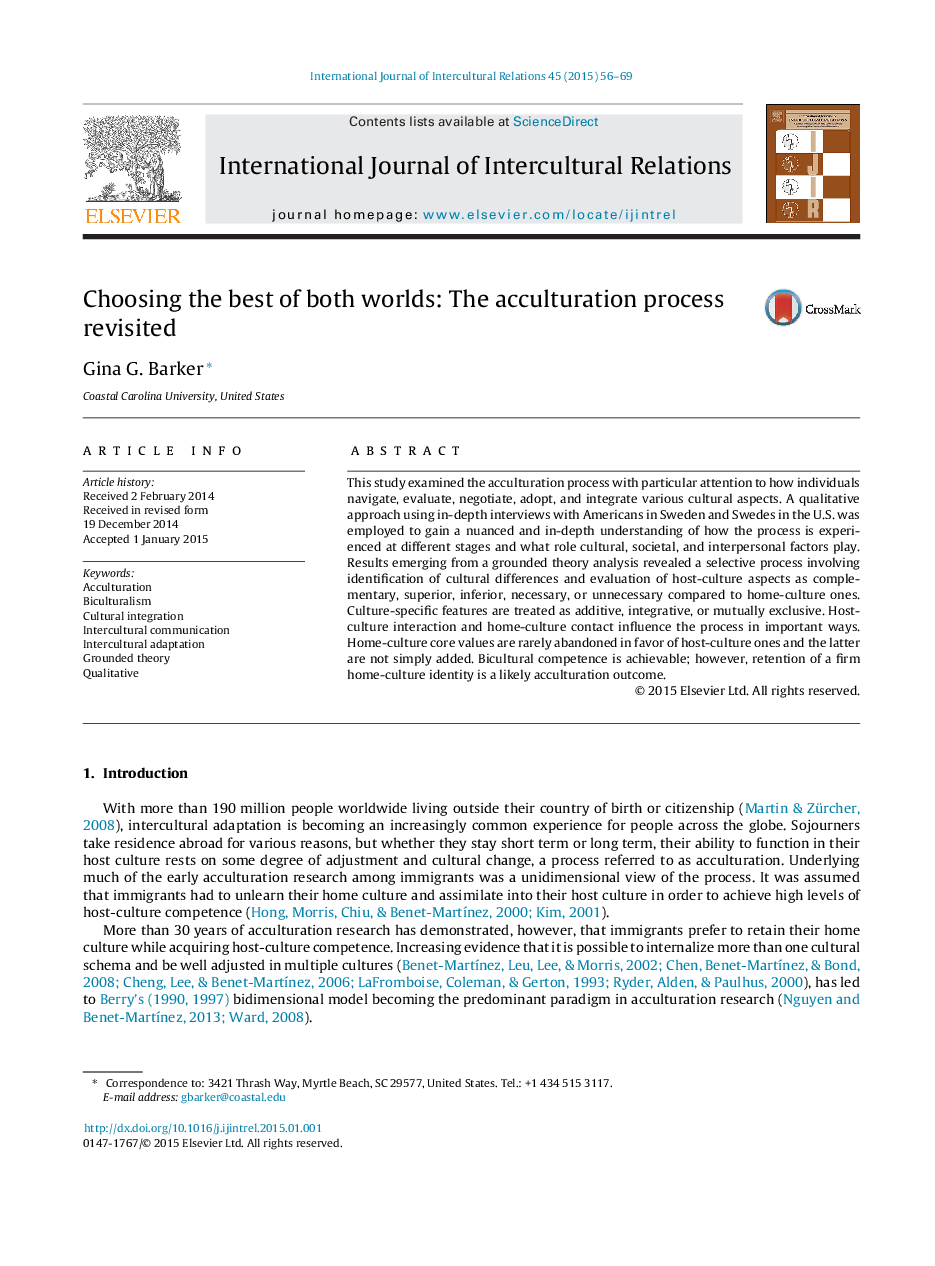| Article ID | Journal | Published Year | Pages | File Type |
|---|---|---|---|---|
| 947025 | International Journal of Intercultural Relations | 2015 | 14 Pages |
This study examined the acculturation process with particular attention to how individuals navigate, evaluate, negotiate, adopt, and integrate various cultural aspects. A qualitative approach using in-depth interviews with Americans in Sweden and Swedes in the U.S. was employed to gain a nuanced and in-depth understanding of how the process is experienced at different stages and what role cultural, societal, and interpersonal factors play. Results emerging from a grounded theory analysis revealed a selective process involving identification of cultural differences and evaluation of host-culture aspects as complementary, superior, inferior, necessary, or unnecessary compared to home-culture ones. Culture-specific features are treated as additive, integrative, or mutually exclusive. Host-culture interaction and home-culture contact influence the process in important ways. Home-culture core values are rarely abandoned in favor of host-culture ones and the latter are not simply added. Bicultural competence is achievable; however, retention of a firm home-culture identity is a likely acculturation outcome.
